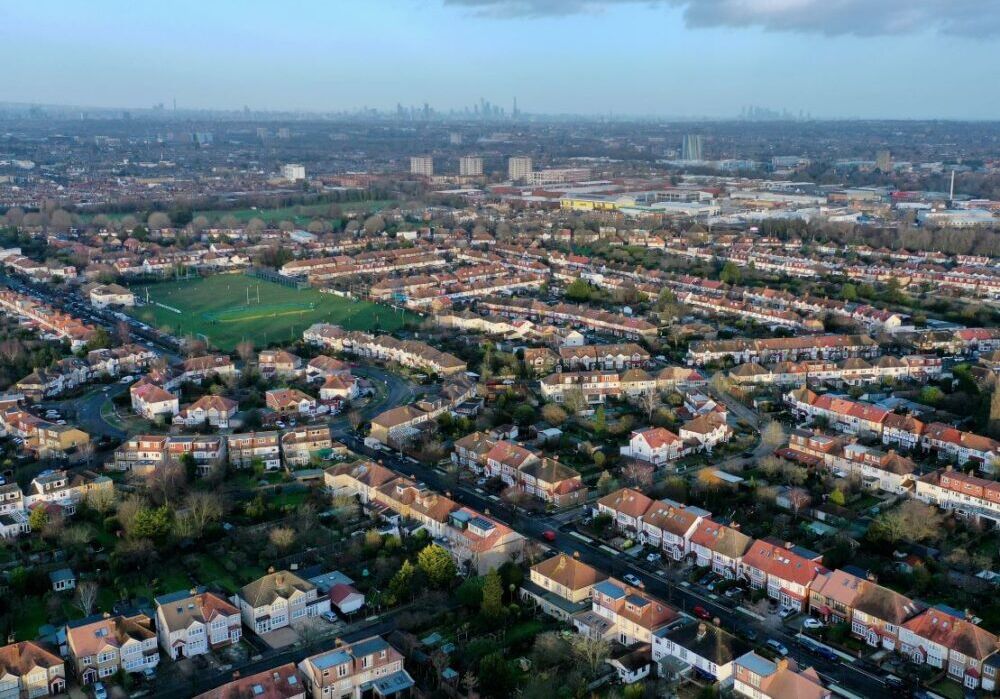What is a Christian housing policy?

"Housing is an issue that has a profound impact on human dignity and family stability."
This week has seen several stories about housing. They have highlighted the relationship between the cost-of-living crisis and what many housing charities are seeing as a breakdown in the housing market, particularly for those at the ‘bottom’ of the housing pyramid. For families struggling to cope with the cost-of-living crisis, finding a safe, clean, affordable place to live is far from a certainty, but finding a solution to this issue is far from straightforward, as all the main political parties are discovering.
On Tuesday official statistics were published revealing that on 31 March this year, there were almost 105,000 households in temporary accommodation, including more than 131,000 children. This is the highest level since records began in 1998 and a 10% rise since last year. There is undoubtedly a relationship between these figures and what is happening in the rental market where, on Wednesday, the BBC ran a story about the lack of supply and soaring demand for rental accommodation. In some areas it is estimated that there are around 20 requests for every property coming up for rent. Shelter and Crisis have both commented on how these numbers are closely related to family instability and homelessness.
The Secretary of State for Levelling Up, Michael Gove, delivered a major speech about housing and housebuilding on Monday. The Government sees the problem, as do all the main parties. That is why Mr Gove reiterated the Government’s commitment to its manifesto pledge to build one million more homes by the next election – a target they may well reach. He also committed to building 300,000 more homes every year – a target that has not yet been achieved and that many experts suggest is more difficult to meet unless something major changes.
The Government’s proposal on that front is to speed up the planning process, extend existing laws to make it easier to convert non-residential buildings into residential properties, some targeted funding to kick start development in areas like Cambridge, and to set up the Office for Place, which is actually a quango.
In response Labour talk of a ‘housing emergency’ and suggest that housing targets and empowering and requiring localities to develop their own plans and solutions as well as promote social housing development is a way to tackle the problem. In Scotland the SNP have focused on promoting affordable housing, abolished the ‘right-to-buy’ scheme, and, like other parties, promoting dedicated funds that focus on specific needs, like rural housing.
The point is simple: we have a serious lack of housing. We are failing to meet the demand out there. Not only are people struggling to rent, but there's a lack of affordable housing as well. So people can't get onto the housing ladder anywhere near as easily as in previous generations. All the political parties see the problem. All of them claim to have solutions.
I wonder when we read stories about housing policy whether you see the matter as one that concerns you, or whether you have thought about what a Christian response to housing need looks like? Does the Christian worldview, which draws on God's inspired word for its wisdom, have anything to contribute to this debate?
It is fair to say that housing is not an issue CARE has focused on, and we do not have any plans to do significant work in this area in the near future. Yet housing is an issue that has a profound impact on human dignity and family stability. There is a large body of research that points to the profound impact the quality of housing has on home-life, on child development, and life outcomes.
There is a direct link between the quality of one’s home and physical health, and increasingly we are understanding the link between the place we call home and mental health. Homes should be places of safety and nurture, but for many, their homes is a place of threat and insecurity. That has an impact on illnesses that are connected to short term and chronic mental health issues.
But the importance of housing is not simply linked to a compassionate response to need or pragmatic means of preventing health and social problems.
The idea of home is one that should resonate deeply with every Christian. We are after all exiles in this world waiting for, and on a journey towards, our eternal home. As the Apostle Paul says in Philippians 3:20-21, we are 'citizens of heaven'. In fact, Moses was commended by the writer to the Hebrews because he looked for an everlasting city, rather than getting too settled here on earth. The Apostle Peter meanwhile, is even more explicit, he actually calls Christians 'aliens' or 'exiles' on earth. Indeed, you could say we are made to long for our true home which is why the idea is so important to every person. The Christian cheers the sentiment that “home is where the heart is.”
Therefore, ensuring people have access to good housing is a public health issue, but, as Christians, we should also see it as a reflection of how important home is for every one of us, because this as an echo of our spiritual longing for our true home.
That’s why when it comes to housing policy – like every other area of public policy – we can go further than mainstream political parties and do better than showing compassion by alleviating immediate need. Yes we give shelter to the homeless but we also seek to create the conditions for good homes. That means understanding where there is evil and injustice that needs to confronted and challenges, and to work out what is the good that we seek to achieve and how best to promote it.
So what would a biblical housing policy look like?
Surely it must guard the vulnerable from exploitative landlords who care little about the quality of the dwellings they provide (and some local authorities and housing associations are the worst culprits here). It would protect tenants from excessive profiteering from high rents. It would balance local views and concerns about development with an appeal to the common good and compassion for those who long for a home. It would acknowledge the importance of green space, but also see the need to compromise at times to ensure we have enough stock to meet demand.
It would incentivise builders to build quality affordable housing, but understand that building is a business not just a social service. It would balance the need for rental accommodation and home ownership and ensure housing tenure that is flexible for those in certain seasons of life and secure and stable for other times.
It involves the state, both national and local, setting standards, safeguarding people from harm, and helping some who have fallen off or who are blocked from getting on the housing ladder to get a foot on the first rung.
We also need good town and community planning and healthy local economies. That means good housing policy involving private enterprise, not just builders but banks, businesses and others; and it will involve community building institutions, like the church, and individual responsibility to maintain and cultivate these elements.
That is a long list and not even a comprehensive one. That is why housing has never been an easy issue for any politician or Government to confront. It is complex. But it is also important. Crucially important if we are to promote and support families and communities to thrive. Home is where the heart is, but do we have a heart for our neighbours who do not have a stable safe home today?






